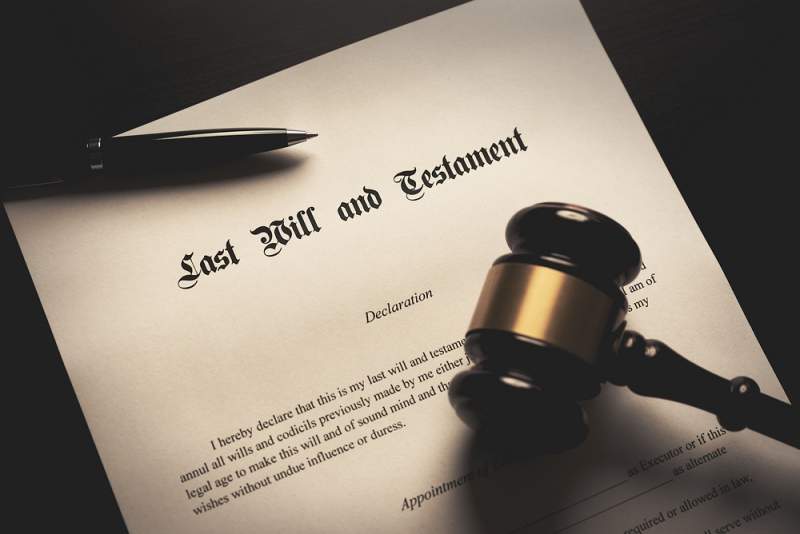Contesting a will can be a complex legal process. This guide provides an overview, but it is essential to seek professional legal advice to understand your specific situation, eligibility, and options.
Losing a loved one is a deeply emotional experience, and the process of settling their estate can be complex and overwhelming. This guide aims to provide a clear and informative overview of contesting a will in Western Australia, offering valuable information for those seeking to understand their rights and options.
Understanding Family Provision Claims
In Western Australia, eligible individuals can contest a will and make a “Family Provision claim” if they believe they have been unjustly excluded or received inadequate provision from the deceased’s estate. This guide, created by a team specializing exclusively in Wills and Estates law, will guide you through the process and help you achieve the best possible outcome.
Grounds for Contesting a Will
To successfully contest a will in Western Australia, two key conditions must be met:
- Eligible Person: You must fall under the category of “eligible persons” outlined in the Family Provision Act 1972. This includes spouses, de facto partners, children, grandchildren under specific circumstances, stepchildren, and parents in certain situations.
- Inadequate Provision: You must demonstrate that the deceased failed to make “adequate provision” for your welfare and advancement in life within the will. This involves a detailed assessment of your financial situation, relationship with the deceased, the size of the estate, and the deceased’s relationship with other beneficiaries.
Key Considerations for Contesting a Will
- Domicile and Assets:
The deceased must have been domiciled in Western Australia and left assets within the state for a will to be contested under the Family Provision Act 1972. This applies even if the deceased held assets outside of Western Australia.
- Time Limits:
Prompt action is crucial. You must file your claim within six months of the grant of probate. If you miss this deadline, you’ll need to obtain court permission and provide compelling reasons for the delay. Failure to do so might result in your claim being denied.
- Accessing the Will:
Obtaining a copy of the will can be challenging. The executor has no obligation to provide it until probate is granted. You can access the will after the court grants probate, allowing you to understand its contents and assess your options.
- Legal Costs:
Legal costs associated with family provision cases are at the court’s discretion. While the court typically orders payment of costs for successful claimants, this is not guaranteed. Consulting with a lawyer is essential to understand the potential financial implications.
- Intestacy:
When a person dies without a valid will, their estate is distributed according to the Administration Act 1903 (WA). This act outlines specific rules for distributing the estate based on surviving family members.
Challenging the Validity of a Will
In some cases, the validity of the will itself can be challenged. This might involve proving that the deceased lacked mental capacity, the will was forged, or undue influence was exerted during its creation. Specific legal requirements and evidence are needed to support such claims. Consulting with a lawyer is crucial to determine the validity of challenging the will in your specific situation.
The Court’s Assessment Process
When considering a Family Provision claim, the court follows a two-stage process:
- Jurisdictional Question: The court first determines whether the deceased’s provision for the claimant was “adequate” for their proper maintenance, support, education, and advancement in life. This assessment is based on the deceased’s circumstances at the time of their death.
- Discretionary Provision: If the court finds inadequate provision, it exercises its discretion to determine the appropriate amount to be allocated from the estate for the claimant’s needs. This assessment considers the claimant’s circumstances at the time the order is made.
What is “Proper Maintenance”?
The term “proper” signifies a higher standard than “adequate.” While a small sum might be sufficient for “adequate” maintenance, “proper” maintenance might require a larger amount considering the size of the estate and the lifestyle the claimant was accustomed to during the deceased’s lifetime.
Can Grandchildren Contest a Will?
Yes, grandchildren can contest a will under specific circumstances. The Family Provision Act 1972 recognizes grandchildren as eligible claimants if they meet certain criteria:
- Dependent on the deceased grandparent immediately before their death.
- Alive at the time of the grandparent’s death, and their parent (who was a child of the deceased) predeceased the grandparent.
- Born within 10 months after the grandparent’s death, and their parent (who was a child of the deceased) predeceased the grandparent.
Can a Niece or Nephew Contest a Will?
No, nieces and nephews are not eligible to contest a will in Western Australia under the Family Provision Act 1972. This is because the Act’s definition of “eligible persons” does not include them.
Our Extensive Experience
Perth Probate boasts extensive experience as Inheritance Lawyers, offering expert advice and Court representation in various key areas:
- Determining your entitlement to the deceased’s estate.
- Outlining essential evidence necessary for contesting a Will.
- Filing applications in the Supreme Court to contest or seek provisions from an estate without a Will.
- Safeguarding beneficiaries’ inheritance rights in disputes.
- Representing Will executors or estate administrators facing challenges.
- Drafting Deeds of Family Arrangement to formalize beneficiary decisions on estate distribution per Will or inheritance laws.
*This guide is not financial or legal advice. You should consider seeking independent legal advice from one of our experts at Perth Probate. The publisher is not liable for any loss caused, whether due to negligence or otherwise arising from the use of, or reliance on, the information provided directly or indirectly, by this fact sheet.




